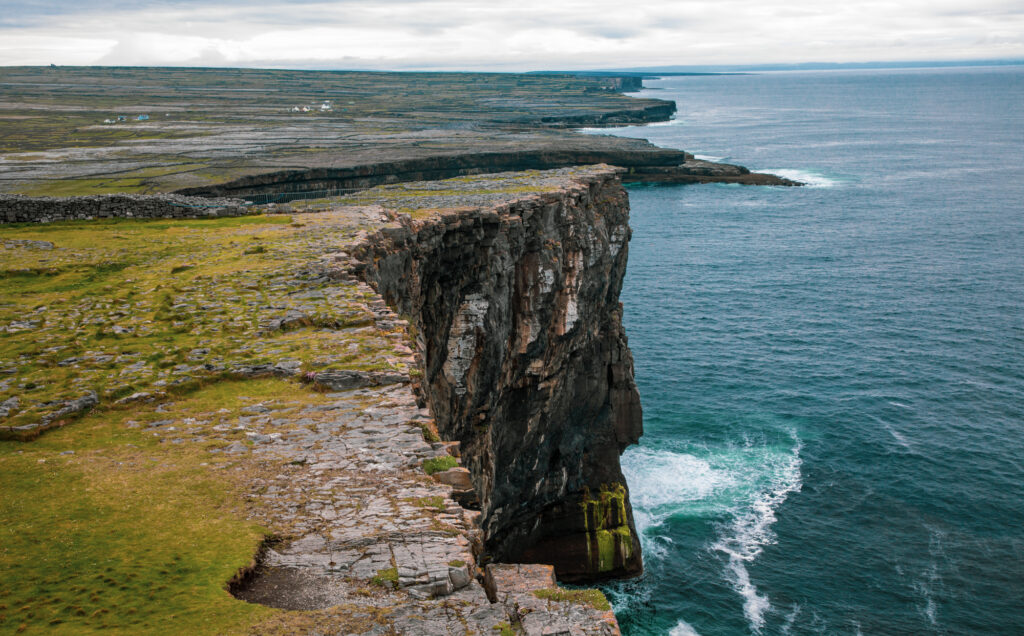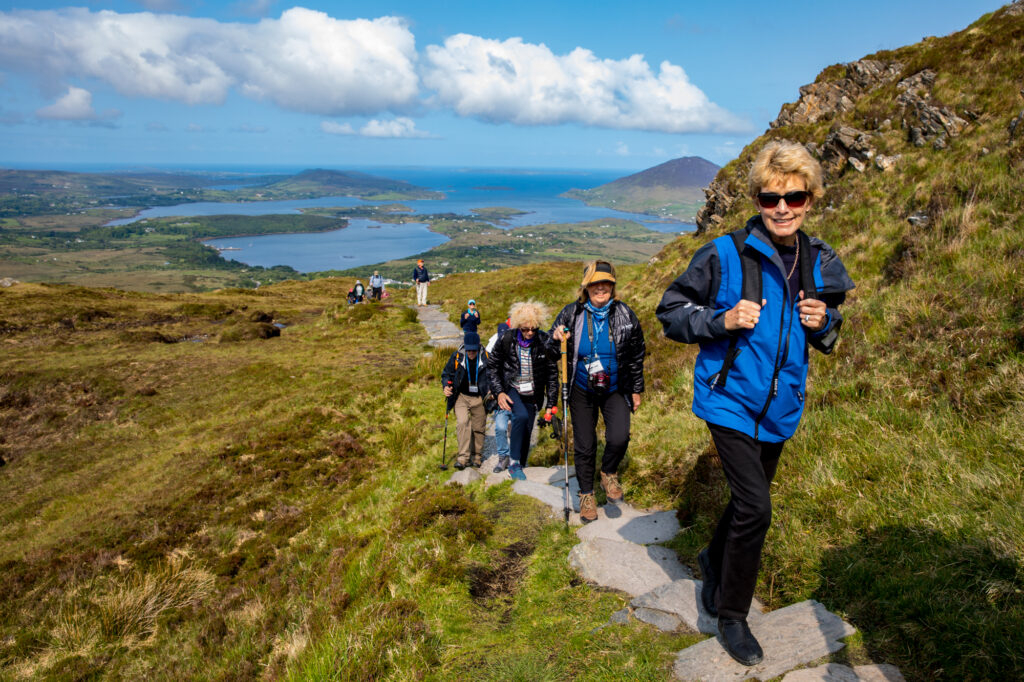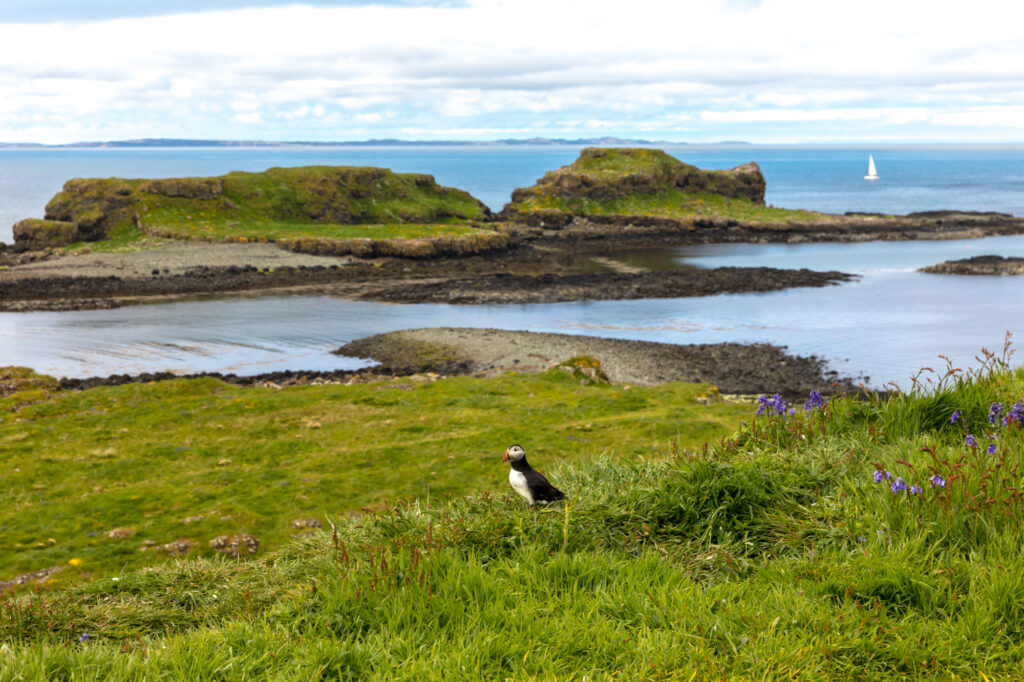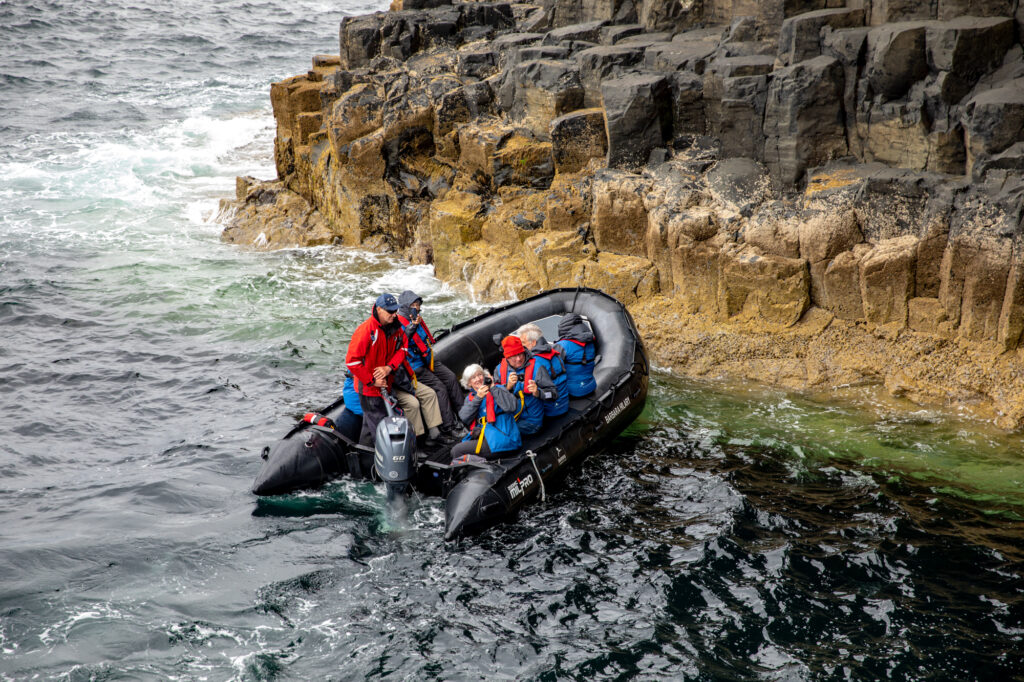Pia Harboure is a passionate explorer and experienced portrait and documentary photographer, whose love for storytelling through images has fuelled her global adventures.
For the last decade, Pia has split her time between teaching photography to fellow travellers and focussing on collaborative and sustainable projects in areas of human rights issues, working for NGOs like UNICEF.
We sat down with Pia to explore her unique perspective on photography, her valuable tips for capturing the polar regions and beyond and what she is most looking forward to as a Photography Guide this Antarctic season.
I knew I wanted to see and experience the world as much as I could with my camera as my passport. To use it to get a glimpse into different cultures and geographies, to understand things.
Pia Harboure

Did you always know you wanted to be a photographer?
As a kid, I was very impressed by any storytelling format, from books with outstanding images to movies and paintings. Their presence was substantial in my home growing up and having that first-hand access prompted my emotions and imagination, and introduced me to ways of expressing myself.
When I was nine, I begged my mom for a camera for my first communion present. I would carry it around everywhere to photograph all the objects that I loved back then and make everyone around me strike a pose while I prepared ‘the stage’. Over time, my interest in films and music videos became a big deal.
Then when I was 16, I found a 35 mm Olympus camera abandoned inside my dad’s closet. I started a journey into more serious ground after that, taking courses at first and then working freelance as a commercial photographer. I knew I wanted to see and experience the world as much as I could with my camera as my passport. To use it to get a glimpse into different cultures and geographies, to understand things. Making it my profession came kind of naturally but it wasn’t always easy.
I guess it works like every decision we make in life, partly instinctively, derived from a strong pulling interest and partly conscious of the tolls on the road ahead.
What types of subjects or scenes do you enjoy photographing the most, and why?
It is more like a favourite state or feeling for me than a particular subject, I like to think about subjects and scenes that I can’t predict when I work. The unexpected presence or serendipity element on the horizon.
I find humans the most interesting subject, I think it’s because I enjoy building a platform of trust upon representation with the other, a space where we both can agree on how the photo should look.

How important is equipment to how you work?
In my work, equipment is important but not crucial. My choice will be determined by the work that I’m doing. I change formats a lot, I experiment and play around when I’m not on a formal assignment. Experimenting with different gear is important in my practice to not lose the creative technical aspect and to know what’s out there in the market.
I choose gear that will give me the best outcomes. Let’s say, if I’m photographing a distinctive bird for Aurora, I’ll use a large heavy zoom but if I’m working on a personal project in a documentarian aspect, I’ll use short fixed lenses instead, especially if I have to photograph indoors with low light conditions.
I often use my smartphone for photography, which is a great tool if you know how to make good use of it. People tend to think that we as photographers don’t take them too seriously but that’s not the case. I ‘photo draft’ with them a lot and I even edit RAW files from my DSLR camera sometimes.
Now, one thing is key for me regarding equipment and that’s to make sure I don’t carry around what I don’t need. We also need to think about our subjects who are being photographed and ask ourselves questions about our gear. Would my subjects be comfortable if I photographed them with a huge lens from a higher viewpoint?
Choosing a camera is related to the kind of photographer you are or would like to be and how you position yourself mentally and physically in the world around you.
What are your biggest accomplishments, both personally and professionally?
Having peace of mind and keeping goals healthy. I wouldn’t say material achievements or prizes aren’t important. They definitely help push you forward, build a community and gain credibility, but there’s nothing that I would consider more important than taking one step at a time and taking lots of photos. We all know that quote that goes something like… “For every OK photo that you take there are over a thousand bad ones”.

What is the most memorable project you've worked on?
Teaching photography to kids was one of those projects that shaped my practice, they asked the greatest questions and photographed from perspectives adults would never consider. Maybe it’s because as we grow, we get so bombarded by images and we also end up limiting ourselves. They would – without knowing – force me into finding new ways of showing and saying things. Their quality of ideas and enthusiasm is a resource you can’t ignore, it’s very inspiring.
What are some of the challenges of photographing in difficult settings or conditions?
When photographing in difficult settings or conditions, I like to feel that I'm well prepared. This includes building the right mindset as things might not turn out the way you expect, and that's most likely - otherwise, it would be boring.
Pia Harboure
I do work with a coach to help me put my priorities in order, to feel comfortable and safe. I find this especially helpful when I go on difficult projects, for example when I go to slums to take photos.
When in nature, the dynamic may be different but I still ask myself questions and assume that everything is changing all the time. It’s always good to think about the worst-case scenario and build from there. It is important to identify the risks; I’d rather not put myself or my colleagues at risk.
You have to make amends with the idea that sometimes the ‘perfect shot’ is the one you can’t prepare for but experience. That ‘perfect contrast’ may be gone soon, that iceberg may roll and that wind can suddenly be a katabatic wind without a chance for anticipation.

What are the top tips you like to share with expeditioners to help them capture the polar regions and beyond?
The most fruitful tip I can hand out is to ask yourself questions like, what sort of images do you want to create and for what purpose? Are they for social media (think about substantial content to share with people who won’t have access to travel and your responsibility as a communicator)? Are your images going to be printed or put together for an intimate coffee table book? Questions will help you draft and let you make the most of it.
Remember, things can change so you want to be quick in anticipating and adjusting to new situations and conditions in polar regions. Before travelling, do your research. If you’re only planning to photograph birds; reach out to professionals in that specific field (don’t be shy), they will certainly give you the answers you need.
Another important aspect is the technical one, cameras work differently in the whitish and coldish environments so familiarize yourself with your gear, your settings and the proper way to carry the camera around to protect it at all times, especially from sudden changes in temperature, rain and salt water.
The most important tip would be to try to connect with the experience before taking your camera out. I know, it can be so overwhelming that we want to photograph it all, but try to take a few seconds or minutes to observe, contemplate and breathe it in. These seconds may save you hours in post-production when you’re selecting and editing your photos.
What are you most looking forward to about your upcoming voyages with Aurora?
Join Pia on one of these Antarctic Expeditions
Pia will be joining Spirit of Antarctica Expedtions ANP162S, departing on the 11th of December 2023 and ANP163S, departing on the 9th of January 2024. She will also be joining our South Georgia & Antarctic Odyssey Expedition ASG090S, departing 21st of December 2023.
Spirit of Antarctica
Expedition
Welcome to Aurora Expeditions’ Spirit of Antarctica expedition. Embrace the spirit of polar exploration on this classic expedition to the coveted white continent. Sail across the famed Drake Passage to and...
12 Days
From USD $10,556.00/pp
South Georgia, Falklands & Antarctic Odyssey
Expedition
Welcome to our South Georgia & Antarctic Odyssey expedition.This voyage encompasses the best of the Antarctic Peninsula and South Georgia. Discover historic Stanley in the Falklands~Malvinas and stand in awe...
20-21 Days
From USD $19,646.25/pp

